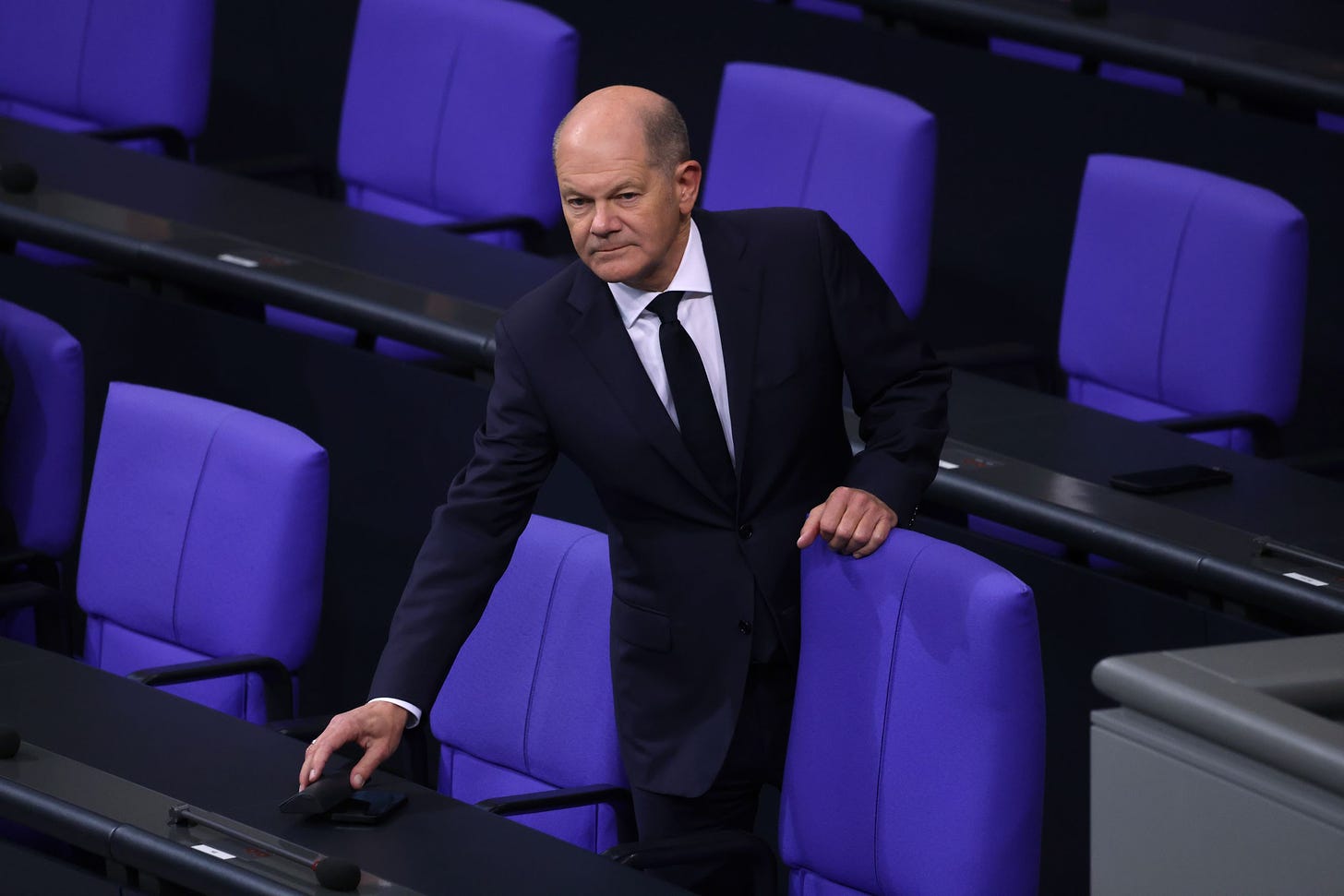German “Traffic Light” Coalition Falls Apart
Chancellor Olaf Scholz Has Dismissed Finance Minister Christian Lindner

After weeks of fighting over budget policies, German Chancellor Olaf Scholz dismissed Finance Minister Christian Lindner of the Free Democratic Party (FDP). This decision will lead to Scholz’s cabinet facing a vote of confidence, while federal elections, originally set for late 2025, will likely be moved up to March. In the meantime, Germany faces economic uncertainty amid problems in its industrial sector.
The so-called traffic light coalition governing Germany over the past three years—comprising the Social Democratic Party (SDP), the Greens, and the FDP—has struggled to provide concrete solutions to concerns of the working class. As living costs surged due to sanctions on Russia and increased military spending, the coalition failed to strengthen social services or secure stable jobs. In the debates leading up to his dismissal, Lindner continued pushing for deeper welfare cuts, threatening to further widen the gap between government policies and people’s needs.
This inability to address pressing economic issues has contributed to a decline in popularity for all three coalition parties. Current polls suggest that the SDP could secure as little as 14% of the vote, with the FDP possibly failing to meet the 5% threshold required for parliamentary entry. In contrast, conservative and far-right parties are doing much better: the Christian Democratic Union (CDU) is projected to lead with 30-34% of the vote, while the Alternative for Germany (AfD) could approach nearly 20%.
The left faces the election from a significantly weaker position. Although The Left (Die Linke) has consistently criticized the traffic light coalition’s neglect of welfare and social justice, it now finds itself more vulnerable than in previous elections. Following Lindner’s dismissal, The Left stated: “The traffic light coalition courted the top 1% and ignored everyone else. Instead of taxing the super-rich, it cut support for the poorest. It ruined them with austerity and became the biggest source of fear in Germany.”
Despite declaring they are ready to face the election, The Left’s standing has been weakened by prolonged internal conflicts that led to a split and the formation of the Sahra Wagenknecht Alliance for Reason and Justice (BSW). Unlike The Left, the BSW saw solid results in recent state elections and is expected to secure around 6% of the federal vote. Commenting on the traffic light coalition’s collapse, the BSW stated that Scholz’s administration had harmed the country by prioritizing US interests. “Instead of supporting good relations with our trading partners and promoting peace in Europe, the SDP, FDP, and Greens, backed by the CDU, have blindly followed US interests in foreign policy—at our own expense,” the party said on Thursday.
With mainstream parties currently ruling out the option of including the AfD in government, the BSW could play a critical role in forming a new majority. However, local analysts warn that the left remains too weak overall to drive a radical break with the status quo, meaning that German workers are set to face even more economic insecurity and crisis over the coming months.




